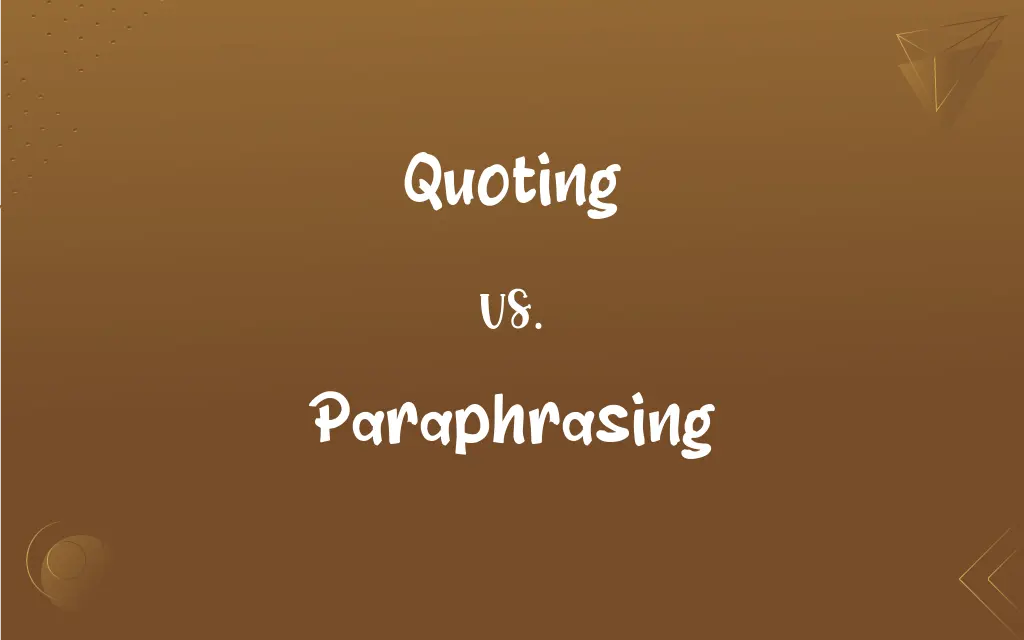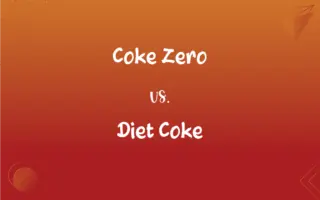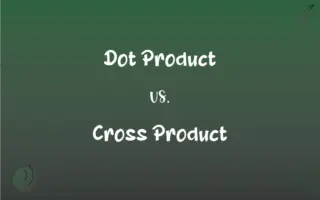Quoting vs. Paraphrasing: What's the Difference?
Edited by Aimie Carlson || By Harlon Moss || Updated on October 23, 2023
Quoting involves directly reproducing another's words, while paraphrasing involves rewording or restating the original text.

Key Differences
Quoting is the act of directly reproducing words, phrases, or passages from a source. Paraphrasing, in contrast, is taking the essence of what someone else has written or said and putting it into your own words.
When one quotes, the original phrasing, punctuation, and exact wording are preserved. Paraphrasing, however, requires reinterpreting and often condensing the original material.
In academic and research contexts, quoting is often accompanied by citation to give credit to the original author. Paraphrasing also requires citation since the ideas are borrowed, even if the words differ.
Quoting maintains the original tone and nuance of a statement. Paraphrasing might introduce a shift in tone or emphasis, depending on the writer's interpretation.
It's important to remember that while quoting preserves the originality of a statement, paraphrasing allows for flexibility in integrating a source's ideas into one's own work.
ADVERTISEMENT
Comparison Chart
Definition
Direct reproduction of words
Rewording or restating the original content
Originality
Preserves original phrasing and punctuation
Involves interpretation and potential condensation
Citation in Research
Requires citation for credited source
Requires citation since ideas are borrowed
Tone & Nuance
Maintains original tone and nuance
Might shift tone or emphasis
Flexibility
Fixed to original words
Flexible in incorporating ideas into own writing
ADVERTISEMENT
Quoting and Paraphrasing Definitions
Quoting
Directly reproducing another's words.
She started her essay by quoting a famous philosopher.
Paraphrasing
Rewording content while retaining original meaning.
She's adept at paraphrasing complex concepts for better understanding.
Quoting
Referencing exact language from a source.
He insisted on quoting the manual to clarify the procedure.
Paraphrasing
Restating information in one's own words.
After reading the article, he was paraphrasing the main points to his friend.
Quoting
Using marks to indicate borrowed content.
Quoting her mentor, she shared a poignant piece of advice.
Paraphrasing
Translating ideas without using the exact phrasing.
Paraphrasing the scientist's findings made them accessible to a broader audience.
Quoting
Citing a source word-for-word.
The journalist was careful when quoting the politician to avoid misrepresentation.
Paraphrasing
Condensing information while keeping core ideas.
He spent the afternoon paraphrasing chapters for his study guide.
Quoting
Presenting someone's words verbatim.
I remember quoting my favorite author in my graduation speech.
Paraphrasing
Reinterpreting a message or content.
She excels at paraphrasing feedback in a constructive manner.
Quoting
To repeat or copy (words from a source such as a book), usually with acknowledgment of the source
Quoted lines from Shakespeare in his lecture.
Paraphrasing
A restatement of a text or passage in another form or other words, often to clarify meaning.
FAQs
Does paraphrasing mean simplifying content?
Not necessarily; it's about rewording, but it can involve simplification.
Is paraphrasing a skill?
Yes, effectively paraphrasing without altering meaning is a valuable skill in writing and communication.
Is citation needed when quoting?
Yes, quoting in research and academic contexts requires proper citation.
Do I need to cite when paraphrasing?
Yes, even when paraphrasing, the source of the idea must be cited.
Can paraphrasing change the original meaning?
Care should be taken to retain the original meaning, but nuances might shift in paraphrasing.
Is it possible to quote without quotation marks?
Quotation marks indicate direct quotes, so they should be used to avoid confusion.
Can I mix quoting and paraphrasing in one passage?
Absolutely, you can quote specific sections and paraphrase others as required.
Can I quote from any source?
While you can quote from many sources, always ensure it's relevant and credible.
What does quoting mean?
Quoting means directly reproducing words or passages from a source.
Can a paraphrase be longer than the original?
Yes, depending on interpretation, a paraphrase might expand on the original.
Can I be accused of plagiarism even when paraphrasing?
Yes, if you borrow ideas without giving credit, it's still plagiarism.
How can I ensure my paraphrase is accurate?
Regularly compare your paraphrase with the original to ensure the meaning is preserved.
Should I always prefer paraphrasing in my writing?
It depends on the context; both quoting and paraphrasing have their places in writing.
How can I improve my paraphrasing skills?
Practice, reading widely, and regularly comparing paraphrases to originals can help.
Is there a tool for paraphrasing?
Yes, there are online tools that offer paraphrasing, but manual checks for accuracy are recommended.
How does paraphrasing differ from quoting?
Paraphrasing involves rewording the original content, while quoting uses the exact words.
Why might one choose quoting over paraphrasing?
Quoting ensures original tone and nuance are preserved, especially for impactful or precise statements.
Is it plagiarism if I quote without citing?
Yes, not giving credit for direct quotes is considered plagiarism.
Is it necessary to paraphrase an entire passage?
No, you can paraphrase specific portions as needed.
Why might someone prefer paraphrasing?
Paraphrasing offers flexibility in presenting ideas and integrating them into one's own work.
About Author
Written by
Harlon MossHarlon is a seasoned quality moderator and accomplished content writer for Difference Wiki. An alumnus of the prestigious University of California, he earned his degree in Computer Science. Leveraging his academic background, Harlon brings a meticulous and informed perspective to his work, ensuring content accuracy and excellence.
Edited by
Aimie CarlsonAimie Carlson, holding a master's degree in English literature, is a fervent English language enthusiast. She lends her writing talents to Difference Wiki, a prominent website that specializes in comparisons, offering readers insightful analyses that both captivate and inform.































































